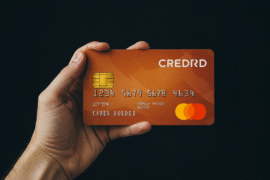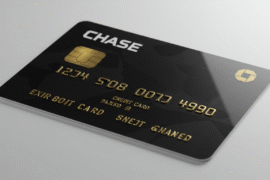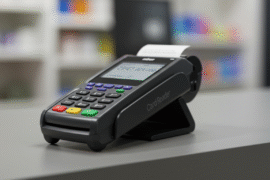This article may contain references to products or services from one or more of our advertisers or partners. We may receive compensation when you click on links to those products or services. Nonetheless, our opinions are our own.
The information presented in this article is accurate to the best of our knowledge at the time of publication. However, information is subject to change, and no guarantees are made about the continued accuracy or completeness of this content after its publication date.
- American Express vs U.S. Bank Credit Cards
- How Credit Card Issuers Work in the U.S.
- A Look at U.S. Bank and American Express
- The Basics of Amex and U.S. Bank Credit Cards
- Differences Between Amex and U.S. Bank Credit Cards
- Comparing Rewards and Benefits
- Exclusive Offers and Cardholder Privileges
- Foreign Transaction and Balance Transfer Fees
- Pros and Cons of Amex vs U.S. Bank Credit Cards
- Wrapping Up the Amex vs U.S. Bank Card Comparison
-
Frequently Asked Questions
- Are U.S. Bank Amex cards accepted more widely than regular American Express cards?
- Which issuer is more likely to approve a new credit card application?
- How do travel and purchase protections differ between Amex and U.S. Bank cards?
- What makes U.S. Bank American Express cards different from standard Amex cards?
- Recommended Reads
American Express vs U.S. Bank Credit Cards
- American Express and U.S. Bank are two leading credit card issuers in the United States. Each offers a variety of cards with distinct benefits, making them popular among different types of consumers.
- American Express cards often include premium services, exclusive Amex Offers, and generous rewards for both everyday purchases and travel.
- U.S. Bank issues its own credit cards, including co-branded FlexPerks® American Express® cards, providing flexible reward structures and user-friendly benefits.
- The rewards programs, annual fees, and card acceptance can vary greatly between the two. It’s important to understand eligibility requirements, fee structures, and cardholder perks before selecting a card that aligns with your needs.
How Credit Card Issuers Work in the U.S.
Credit card issuers like American Express and U.S. Bank provide various financial products tailored to different consumer lifestyles. Each issuer brings its own set of strengths; American Express is known for premium benefits, while U.S. Bank offers strong banking services and user-friendly mobile apps. Choosing the right issuer means understanding what sets each one apart, including reward structures, customer support, and overall convenience.
What Is a Credit Card Issuer?
A credit card issuer is a financial institution that provides credit cards to consumers, allowing them to borrow funds for purchases and repay later. Issuers establish rules for card usage, interest rates, fees, and repayment schedules. They also manage customer service, fraud protection, and rewards programs tied to the card.
A Look at U.S. Bank and American Express
American Express is known for its range of personal and business cards, offering premium perks like concierge services, travel protections, and membership rewards.
U.S. Bank provides a broader range of credit products that serve individuals and businesses alike, often with lower annual fees and versatile rewards. Its cards are widely accepted and supported by digital tools for convenient financial management.
The Basics of Amex and U.S. Bank Credit Cards
Both issuers cater to different needs. American Express focuses on luxury, customer service, and travel benefits. Its cards are ideal for users seeking high-end perks and reward opportunities.
U.S. Bank cards, in contrast, appeal to everyday users with competitive cash-back and point-earning options, making them practical for personal and small business use.
Types of Credit Cards Offered by American Express
American Express provides a diverse selection of cards:
- Everyday rewards cards: Earn points on daily purchases.
- Travel-focused charge cards: Like the Platinum Card and Gold Card, ideal for frequent travelers.
- Business cards: With tools for expense management and tailored benefits for business spending.
Cardholders may also gain access to exclusive experiences and events through Amex membership privileges.
Types of Credit Cards Offered by U.S. Bank
U.S. Bank’s credit card lineup includes:
- Cash-back cards: Offering money back on routine spending.
- Travel rewards cards: Earning points for flights and hotel stays.
- Business cards: Designed to simplify spending and track expenses.
Some cards come with no annual fee or introductory promotions, serving both personal and business needs.
Voted "Best Overall Budgeting App" by Forbes and WSJ
Monarch Money helps you budget, track spending, set goals, and plan your financial future—all in one app.
Get 50% OFF your first year with code MONARCHVIP
Differences Between Amex and U.S. Bank Credit Cards
American Express typically offers higher-tier rewards and luxury travel benefits, while U.S. Bank provides broader card acceptance and more straightforward cash-back programs.
Amex cards may not be accepted at all merchants, especially small businesses. In contrast, U.S. Bank cards operate on widely accepted networks, making them easier to use in more places.
| Feature | U.S. Bank | American Express |
|---|---|---|
| Banking Services | Bank Accounts: Checking, savings, money market accounts, and CDs. The bank is a member of the FDIC. Debit Cards: Offers debit cards and Visa gift cards. |
Bank Accounts: Offers high-yield savings accounts, certificates of deposit (CDs), and personal checking accounts. Gift Cards: Provides gift cards. |
| Credit Cards | Personal Cards: – U.S. Bank Cash+ Visa Signature Card – U.S. Bank Altitude Go Visa Signature Card – U.S. Bank Shopper Cash Rewards Visa Signature Card – Secured cards like the Altitude Go Secured Visa Card and Cash+ Secured Visa Card Business Cards: – U.S. Bank Triple Cash Rewards Visa Business Card – U.S. Bank Business Platinum Card – U.S. Bank Business Altitude Connect Visa Signature Card |
Personal Cards: – Offers travel, cashback, and no annual fee credit cards. Business Cards: – Offers travel, flexible payment, and no annual fee business cards. Corporate Cards: – Corporate Green Card, Corporate Platinum Card, and Corporate Purchasing Card. |
| Loans & Mortgages | Personal: Personal loans, private seller vehicle loans, and lines of credit. Home: Mortgages, refinancing, home improvement loans, and home equity lines of credit. Vehicle: Auto, RV, and boat loans. |
Personal: Offers personal loans. Business: Provides a business line of credit. |
| Business Services | Accounts: Business checking, savings, money market accounts, and CDs. Lending: Business loans and lines of credit. Solutions: Cash management, payroll services, and payment solutions for in-person, POS, and online transactions. |
Accounts: Business checking accounts. Lending: Business lines of credit. Other: Business credit cards and corporate programs. |
| Rewards & Technology | Mobile App: Allows users to track spending, view cash flow, monitor bills and subscriptions, and use automated savings tools. Also includes features for sending and transferring money. Rewards: Offers various rewards programs, such as the U.S. Bank Cash+ Visa Signature Card, which provides cash back on purchases in specific categories. |
Membership Rewards®: The program allows members to use points to cover card charges, pay with points at select merchants, redeem for gift cards, and earn points through referrals. Other Tools: Provides a FICO® Score, Credit Intel financial education, and a CreditSecure® security service. |
| Customer Service | Contact Options: 24-hour phone banking (800-USBANKS), online banking support, and the ability to schedule an appointment with a banker. In-Person: A vast network of branches and ATMs that can be located using the website’s search function. |
Contact Options: Online account login for services, access to a Help Center with FAQs, and social media presence on platforms like Facebook and Twitter. Specialized Support: Includes a Travel Help Center and a Global Assist Hotline. |
Rewards Program Structures
American Express uses a points-based system, enabling members to earn Membership Rewards® points for travel, shopping, and more. Amex Offers and category bonuses add extra value.
U.S. Bank emphasizes simplicity through cash-back and fixed-point reward programs. Customers can often redeem rewards for statement credits, travel, or merchandise.
Understanding how each program aligns with your spending habits can help you choose the right card.
Acceptance and Network Reach
American Express cards have selective acceptance, especially at smaller or international merchants. However, they are widely used in premium travel and retail environments.
U.S. Bank credit cards generally operate on Visa or Mastercard networks, offering broader usability both domestically and internationally. This can be an advantage for frequent shoppers and travelers who need consistent card acceptance.
Eligibility and Application Requirements
Both issuers typically require good to excellent credit (around 680 or higher). Major factors include credit history, income, and debt-to-income ratio.
Applicants will need to provide basic personal and financial information during the application process. Understanding these requirements in advance can improve your chances of approval.
Comparing Rewards and Benefits
American Express delivers robust rewards on select categories and premium experiences such as travel upgrades and exclusive access to events.
U.S. Bank excels in offering flexible redemption options and practical perks for daily spending.
Evaluating these differences helps you determine whether you’re better suited for elite travel perks or everyday financial benefits.
Cash Back and Points on Everyday Spending
For daily purchases, U.S. Bank cards often provide cash-back programs that directly return a portion of your spending.
American Express offers points-based rewards that can be redeemed for a wide range of products and services. Depending on your spending habits, one may provide better long-term value than the other.
Travel Perks and Protections
American Express cards typically include premium travel benefits such as
- Trip cancellation insurance
- Access to airport lounges
- Lost luggage reimbursement
- Emergency assistance services
U.S. Bank also provides solid travel protections, including trip interruption coverage and rental car insurance. These perks offer valuable peace of mind while traveling.
Exclusive Offers and Cardholder Privileges
Amex cardholders enjoy access to early ticket sales, invitation-only events, fine dining experiences, and other lifestyle perks.
U.S. Bank offers retailer-specific promotions and straightforward rewards, including discounts and bonus categories on select purchases.
Fee Structures Explained
American Express typically charges annual fees based on card tier and benefits. While high, these fees often offset the value provided through perks and rewards.
U.S. Bank cards may feature no annual fees or lower fees, making them attractive to budget-conscious users.
Both issuers may charge foreign transaction fees and balance transfer fees, so it’s important to review fee disclosures carefully.
Annual Fees and Waivers
Some American Express cards waive annual fees for the first year, especially mid-tier options. Higher-tier cards, such as the Platinum Card, usually carry a significant annual fee but come with premium benefits.
U.S. Bank offers several no-annual-fee cards, and others may include introductory offers or spend-based waivers.
Foreign Transaction and Balance Transfer Fees
American Express: Foreign transaction fees typically range from 2.7% to 3%. Balance transfer fees apply and are often percentage-based.
U.S. Bank: Some cards waive foreign transaction fees, which can benefit international travelers. Balance transfer fees are generally lower, and promotional APR offers may be available.
Pros and Cons of Amex vs U.S. Bank Credit Cards
| Feature | American Express | U.S. Bank |
|---|---|---|
| Rewards | Premium points and Amex Offers | Simple cash back or points |
| Annual Fees | Medium to high | Low or none |
| Travel Perks | Extensive travel coverage | Basic to moderate perks |
| Acceptance | Limited in smaller retailers | Widely accepted |
| Eligibility | Higher credit score requirements | More flexible for applicants |
Wrapping Up the Amex vs U.S. Bank Card Comparison
Choosing the right credit card comes down to how you spend, what perks matter most to you, and how much you’re willing to pay in fees. American Express excels in delivering premium experiences, robust travel rewards, and high-end customer service. U.S. Bank, on the other hand, offers versatile and user-friendly credit cards with broad acceptance and practical benefits. Understanding your financial habits and goals will help you decide which issuer is a better match for your needs. Take time to review each option carefully so you can make a confident decision.
Frequently Asked Questions
Are U.S. Bank Amex cards accepted more widely than regular American Express cards?
U.S. Bank American Express cards sometimes operate on the Visa or Mastercard network, which are more widely accepted than the standalone Amex network. However, acceptance still depends on the merchant, so it’s best to confirm before making purchases.
Which issuer is more likely to approve a new credit card application?
American Express typically requires a higher credit score and stronger financial history. U.S. Bank may be more flexible, but approval still depends on your credit score, income, and debt-to-income ratio.
How do travel and purchase protections differ between Amex and U.S. Bank cards?
Amex offers broader travel protections like trip cancellation coverage and concierge services. U.S. Bank also includes some travel and purchase protections, but they tend to be more limited. Always check each card’s benefits guide for specifics.
What makes U.S. Bank American Express cards different from standard Amex cards?
U.S. Bank Amex cards often include benefits like flexible reward redemptions, retail discounts, and practical travel perks. They are managed by U.S. Bank but still use the American Express network in some cases. This can combine useful benefits with greater acceptance.

Reviewed and edited by Albert Fang.
See a typo or want to suggest an edit/revision to the content? Use the contact us form to provide feedback.
At FangWallet, we value editorial integrity and open collaboration in curating quality content for readers to enjoy. Much appreciated for the assist.
Did you like our article and find it insightful? We encourage sharing the article link with family and friends to benefit as well - better yet, sharing on social media. Thank you for the support! 🍉
Article Title: Amex vs US Bank: A Beginner’s Guide to Credit Choices
https://fangwallet.com/2025/08/06/amex-vs-us-bank-a-beginners-guide-to-credit-choices/The FangWallet Promise
FangWallet is an editorially independent resource - founded on breaking down challenging financial concepts for anyone to understand since 2014. While we adhere to editorial integrity, note that this post may contain references to products from our partners.
The FangWallet promise is always to have your best interest in mind and be transparent and honest about the financial picture.
Become an Insider

Subscribe to get a free daily budget planner printable to help get your money on track!
Make passive money the right way. No spam.
Editorial Disclaimer: The editorial content on this page is not provided by any of the companies mentioned. The opinions expressed here are the author's alone.
The content of this website is for informational purposes only and does not represent investment advice, or an offer or solicitation to buy or sell any security, investment, or product. Investors are encouraged to do their own due diligence, and, if necessary, consult professional advising before making any investment decisions. Investing involves a high degree of risk, and financial losses may occur including the potential loss of principal.
Source Citation References:
+ Inspo
There are no additional citations or references to note for this article at this time.












































